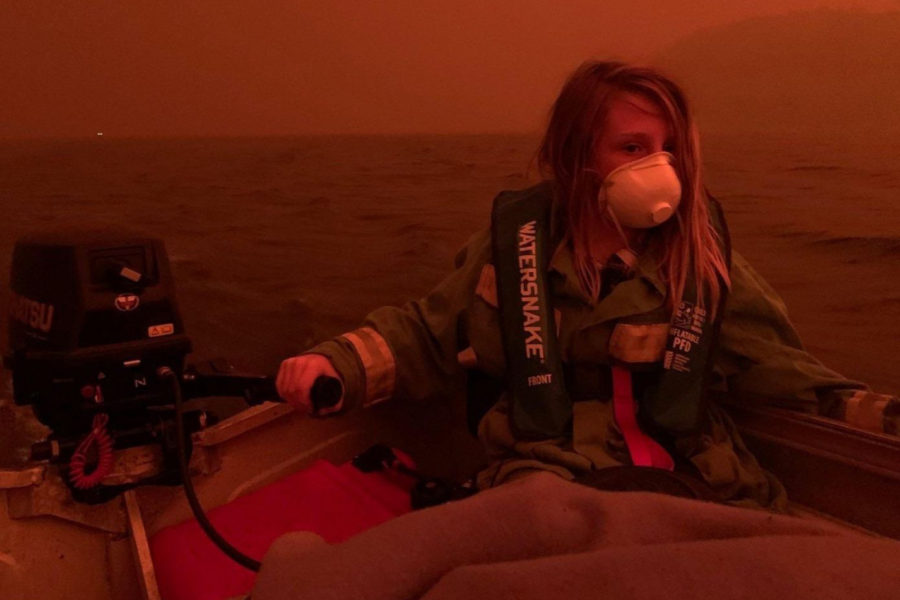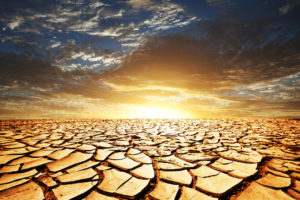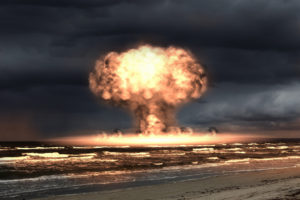Climate change: the nightmares have just begun
The fires in the Amazon are raging. Celebrities rush to their social media accounts. There’s a media frenzy. Then the politicians join in (on Twitter).
“Our house is burning”, French President Emmanuel Macron laments.
“Mind your own business” Brazilian President Jair Bolsonaro replies furiously – well words to that effect.
Macron, undeterred, addresses the G7 summit he’s hosting – a group of the seven most powerful countries on earth. A feeble $22 million is pledged.
Bolsonaro tells them to piss off.
Eventually, the fires die down and all is forgotten.

Fast forward five months to the present day and it feels like history is repeating itself.
Australia has experienced the biggest bushfires in its history. There’s been lots of political drama. But now the flames are dying down and once again there’s a risk that the world will move on.
I hope it won’t.
I’ve felt its heat.
I’ve watched it destroy my home.
I’ll never forget the burning embers explode across the street. Nor will I forget how it melted the window frames into dripping white-hot molten metal.
I’ve breathed in its acrid smoke, which sticks to your clothes like glue.
I’ve walked through the ghostly remains afterwards. I’ve stared at the smoke blackened walls. I’ve experienced the ordeal of putting my life back together afterwards.
I was born in Australia. Not many people know that.
I moved to London with my British mother when I was seven. Then twenty years later, I almost lost my life to fire.
But, let’s go back to the country of my birth – Australia.
There, I saw bushfires frequently. We drove past them. There’s nothing special about them. They’re a common occurrence in the summer months.
My relationship with these fires, however, changed considerably in my adult years following a house fire. I simply can’t forget them, even if the world moves on.
And so, I need to remind you of another event that’s largely forgotten – Europe’s last heat wave. It happened last year even before the infamous Amazon inferno.
Germany, Belgium, Luxembourg, the Netherlands and the United Kingdom all saw record-high temperatures reached in July 2019. Bushfires broke out in some seriously weird places like Sweden and Norway. In fact, satellite images showed vast areas of the Arctic engulfed in flames for first time in human history. Northern parts of Russia and Greenland burned on such a scale that they could even be seen from space.

Perhaps these are freak events and purely down to chance. But the year before the same occurred in the Nordics. And, the year before that it happened in Portugal, killing 66 people.
But let’s even further back. Way back!
In the distant past, massive increases in carbon emissions were linked to extinction events. We know this because ice sheets are reliable book-keepers of ancient climates. Ice cores tell us about the environmental conditions extending as far back as 800,000 years.
During this period there were several interglacial periods like today, which were characterised by large increases in carbon dioxide. The difference, however, is that these pale in comparison to today’s levels. Take a look at the chart below!

If we go back further into Earth’s history then we can find examples of abrupt warming events, like those that occurred between 56 million and 52 million years ago. Here, rapid increases in temperatures occurred in a way similar to what we are experiencing today. And, we know about them because analysis has been carried out on ocean sediments that offer us a glimpse into history.
These events led to mass extinctions and have been linked to huge releases of carbon into the atmosphere over a short period of time, either from volcanic activity or bushfires. What humans have done is artificially recreate these conditions by burning huge amounts of fossil fuels over the last couple of hundred years.
So what’s the solution?

Stories of courage and bravery are sometimes overshadowed by rising anger, hate and finger pointing. This is not productive. We’ve seen far too much of this at Davos this week. This won’t help solve climate change.
So forget the celebrities and politicians. Australia’s bushfires were 46 percent bigger than those in Brazil. They covered an area greater than South Korea and killed more than 1 billion animals.
Yet even during this horrific period in Australian history, we saw the stunning beauty of the human spirit. It was ordinary people and their stories that often show the best of humanity.
This is what will save our planet.
We should see climate change as an opportunity, not a threat. If we invest in ventures that aim to reduce carbon emissions, we can make difference even if many of these fail. Let’s also invest in the unsexy stuff, like better waste management. These things could profit tremendously from our transition to a low-carbon economy.
The time for grand political gestures and social awareness campaigns has ended. We can’t simply pledge to cut carbon emissions when we are already facing an energy crisis. Our energy needs are growing and we are still powering the global economy with fossilised dead plants and animals.
There’s so much innovation and so many potential solutions.
This is not the time to grieve or point fingers. Our climate change nightmares have just begun.
So it’s time to wake up and fix this.












